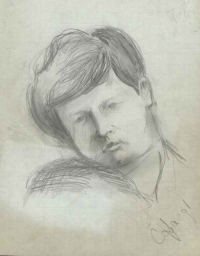| Páginas sobre el tema: < [1 2 3 4] | Article "8 spelling mistakes even smart people make" Autor de la hebra: Melanie Meyer
|
|---|
Ty Kendall 
Reino Unido
Local time: 00:07
hebreo al inglés
Oliver Walter wrote: Ty Kendall wrote:
The lack of knowledge of how to use "your/you're" and "they're/there/their" has little to do with language change, they are still homophones as they have always been, but the lack of adequate language instruction in British schools (well-documented) has produced legions of people who talk about "your great" / "your the best".
their/there are homophones (they rhyme with "hair" and "air"); "they're" is pronounced differently (sounds like "they r" your/you're are not homophones ("your" is pronounced like "yor"; "you're" is pronounced like "yoo r" Oliver
I disagree, especially in connected speech, you'd have to have a pretty discerning ear to hear any difference in them.
You're also presuming a single universal pronunciation. They are certainly homophones in my accent/dialect and most others I hear.
Also, let's look at the phonetics....
According to the OED:
your = jɔː(r)
you're = jɔː(r) / jʊə(r) (not a massively divergent pronunciation - like I said, practically indistinguishable)
there = ðeə(r)
their = ðeə(r)
they're = ðeə(r)
(These are the phonetic equivalents for British English**)
It seems the OED thinks they're homophones, and so do I.
[Edited at 2011-10-29 10:22 GMT]
| | | | Oliver Walter 
Reino Unido
Local time: 00:07
alemán al inglés
+ ...
| You're entitled | Oct 29, 2011 |
If I tell somebody, referring to him or her, and then to other people: "You're entitled to your opinion and they're entitled to their opinon.", I pronounce "you're" and "your" slightly differently and I pronounce "they're" and "their" slightly differently. I believe that my pronunciation of English is equal or close to standard British English, with no significant regional accent.
However, as I said, you're entitled to your opinion.
Oliver
| | | | Will Masters 
España
Local time: 01:07
español al inglés
+ ...
| intentionally adding stress to a word to make a difference | Oct 29, 2011 |
Oliver Walter wrote:
their/there are homophones (they rhyme with "hair" and "air");
"they're" is pronounced differently (sounds like "they r"
your/you're are not homophones ("your" is pronounced like "yor"; "you're" is pronounced like "yoo r"
If I tell somebody, referring to him or her, and then to other people: "You're entitled to your opinion and they're entitled to their opinon.", I pronounce "you're" and "your" slightly differently and I pronounce "they're" and "their" slightly differently. I believe that my pronunciation of English is equal or close to standard British English, with no significant regional accent.
Hey guys,
I was born and raised in Manchester but am living down in the South at the moment so have lived with both general accents - both northern and southern. I have to say that generally I agree with Ty Kendall, as in normal speech there wouldn't be a difference in the way I would pronounce these two sets of words. The only time when I personally would make a distinction between them would be if I was wanting to intentionally add emphasis to what I was saying in which case I would pronounce "their" and "your" as normal, but would stress the "they/you" in "they're" and "you're", thus making them sound very slightly different.
| | | | Ty Kendall 
Reino Unido
Local time: 00:07
hebreo al inglés
Similar to Will, I moved around a lot as a kid (Worcestershire, West Midlands, Staffordshire, Shropshire) and so I don't have a significant regional accent either.
I believe that my pronunciation of English is equal or close to standard British English
I don't think we should be promoting any variety of English pronunciation as more proper than any other. That's the insinuation with the above quote in my opinion. There are a lot of linguists that would argue over what "standard British English" is, or if it even exists. The notion that R.P is the standard by which all other accents should be judged is somewhat linguistically outdated.
I agree of course that you are entitled to your opinion too. And I agree with Will that intentional emphasis would be the only reason that I might consider pronouncing them differently, although if I really wanted to stress it, I'd abandon the contraction altogether and just say "YOU ARE" or "THEY ARE".
Perhaps the difference isn't geographical, but generational.
| | |
|
|
|
| It's the opposite | Oct 29, 2011 |
neilmac wrote:
The "should of" is well nigh ubiquitous, a mistake commonly made even by native speakers, understandably, since the spoken word sounds like "of". The problem is when these chatty luminaries try to set their thoughts down on paper.
Why "even by native speakers"? Actually, most such mistakes are made by native speakers. I, as a non-native English speaker, would never write "should of" instead of "should have", "it's/you're/he's..." instead of "its/your/his...", and v.v.
Not because I am some great linguist and a marvelous language master, but simply because I first learned to write and then to speak (naturally, we were not being taught to write and pronounce separately, as two subjects, but written language was basis for oral). If my first encounter with these things had been hearing someone saying something that sounded "I shoud'v" or "itz", I perhaps would have been on the erroneous side, but the only form I had known of, for quite a while, was "should have", and it was not until quite a while later that I have come across such acts of laziness as the mentioned "should of".
| | | | | Páginas sobre el tema: < [1 2 3 4] | To report site rules violations or get help, contact a site moderator: You can also contact site staff by submitting a support request » Article "8 spelling mistakes even smart people make" | Anycount & Translation Office 3000 | Translation Office 3000
Translation Office 3000 is an advanced accounting tool for freelance translators and small agencies. TO3000 easily and seamlessly integrates with the business life of professional freelance translators.
More info » |
| | TM-Town | Manage your TMs and Terms ... and boost your translation business
Are you ready for something fresh in the industry? TM-Town is a unique new site for you -- the freelance translator -- to store, manage and share translation memories (TMs) and glossaries...and potentially meet new clients on the basis of your prior work.
More info » |
|
| | | | X Sign in to your ProZ.com account... | | | | | |







